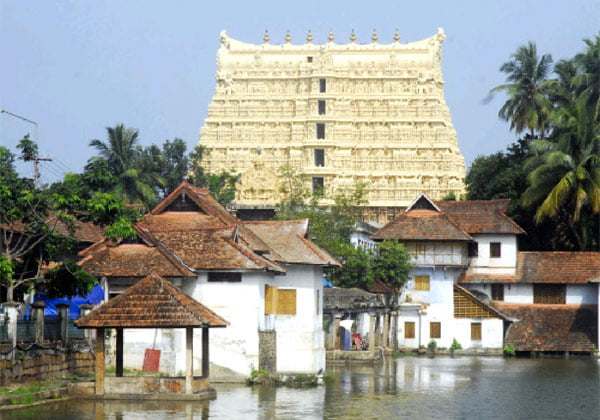Now, when religion is a soft spot that writers would hate to talk about, we should look into some age old customs and traditions that teach us religious brotherhood.
ED is celebrating The Brotherhood Week here, do join in the celebrations!
Lotus flowers, the national flower of India are one of the flowers used most frequently in poojas.
Come behold in Thirunavaya in Kerala, where these flowers used in temples are cultivated and sold by a Muslim family for generations.
Meet Muhammed Aslam, owner of acres of lotus ponds sells 6000 lotus flowers everyday.
He provides lotus flowers to almost all the temples around at the rate of one and half rupees to two rupees.
It is not just good business but also a ritual and a social custom he was taught by his father and grandfather.
A Byte of History
Thirunavaya situated on the banks of River Bharatapuzha in Malappuram district, is a historical place in Kerala. It is the place which used to host this historic annual fest of Mamangam centuries ago.
The ruler of majority of the northern zone of Kerala used to be called the Zamorin family. They built this historic temple called Navamukunda Temple on the banks of Bharatapuzha and there are many associated temples there.
They are one of the biggest temple chains in Kerala.
The temples there use lotus petals exclusively for worship of the deity.
There is 250 acre lotus cultivation in the area which provides lotus flowers for temples at Coimbatore, Thrissur and Guruvayoor too.
Most of these flowers come from Mohammed Mustafa’s farm in Thirunavaya.
Muslim Families Selling Lotus Flowers For Temples
Mohammed Mustafa has never faced a discrimination from his Hindu or Muslim brothers and sisters.
He has been doing this for generations, and being a Muslim has not affected his trade.
He sells lotus flowers at economic rates since it is for a spiritual purpose.
He believes it is by the blessings of both Hindu and Muslim Gods that his business has bloomed over generations.
What is more interesting is that Mustafa would encourage many of his friends both Hindus and Muslims to do lotus farming which created a means of livelihood for many families. Majority of the farmers are Muslims.
Today it is a source of income and show of brotherhood for around 35 Muslim families in Malappuram.
Majority of these farmers lack educational qualifications. They have hardly passed 10th standard and have hardly traveled beyond Kerala.
They practice religion rigorously and have gone to madrasas.
So are the Hindu population in the area.
But they know to differentiate between religion and fanaticism.
They have the sense the common sense not to fall prey to the fanaticism and fight among themselves.
Time to learn something from them.
Read More:
ED is celebrating The Brotherhood Week here, do join in the celebrations!
Yes I Am Hindu And She Is A Muslim…And We Even Shared Our Food
ED Celebrates It’s Brotherhood Week With A Poster Series Signifying Love Amongst Religions




































